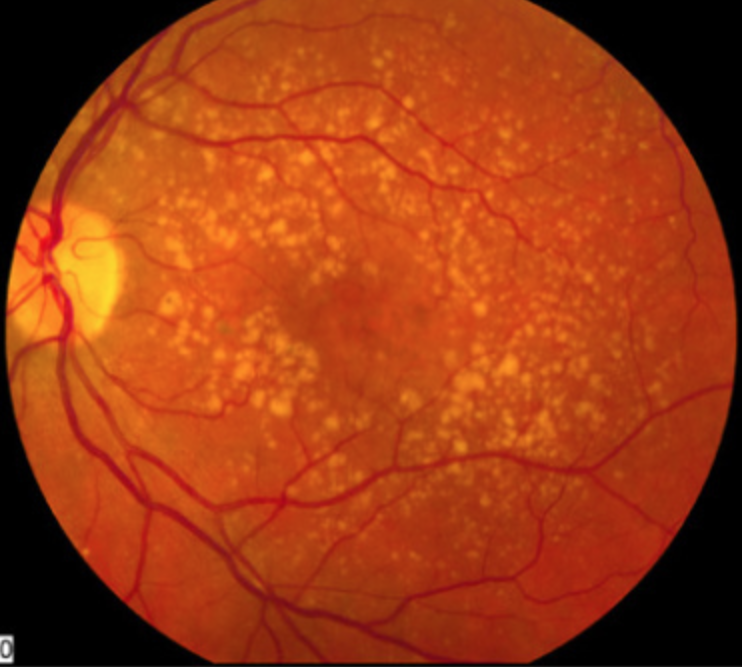 |
|
A recent study linked more advanced AMD to a higher risk of mental health issues. Photo: NEI. Click image to enlarge. |
Visual acuity (VA) loss has been associated with depression in patients with age-related macular degeneration (AMD). However, previous studies did not incorporate subgroups of AMD when making this association. A recent study included 875 AMD patients classified by multimodal imaging who completed the NEI VFQ-25 assessing visual functionality in an attempt to describe the relationship between VA and mental health in different classifications of AMD.
The study demonstrated a significant association between mental health questionnaire scores and AMD classification, as well as VA in both the better and worse seeing eye in patients with AMD. Patients with bilateral geographic atrophy (GA) and bilateral advanced AMD had the lowest mental health subscale scores, which is similar to findings from previous studies.
“Likewise, patients diagnosed with only neovascular AMD had relatively higher scores in comparison to GA patients,” the authors explained.
They noted that treatment availability also played a role. “Medical therapy can be used to maintain vision among neovascular AMD (intravitreal anti-VEGF injections), while there is no established treatment for GA,” they wrote. “Moreover, in patients with early/intermediate AMD, several therapeutic approaches (smoking cessation, a healthy diet, antioxidants) can be taken to slow progression of the disease to more advanced forms. Thus, the benefits of these therapies in patients with early forms of AMD/neovascular AMD vs. lack of any therapy in GA patients are likely contributing to AMD classification as a significant association of mental health VFQ-25 scores.”
Patients with VA of 20/20 or better in both the better and worse seeing eye had the highest mental health scores, while patients with 20/200 or worse in both the better and worse seeing eye had the lowest scores.
“It is important for clinicians to recognize feelings of worry/frustration in these patients, so they can be appropriately referred, screened and treated for mental health problems,” the authors concluded.
Fonteh CN, Mathias MT, Mandava N, et al. Mental health and visual acuity in patients with age-related macular degeneration. BMC Ophthalmol. October 2, 2022. [Epub ahead of print]. |

